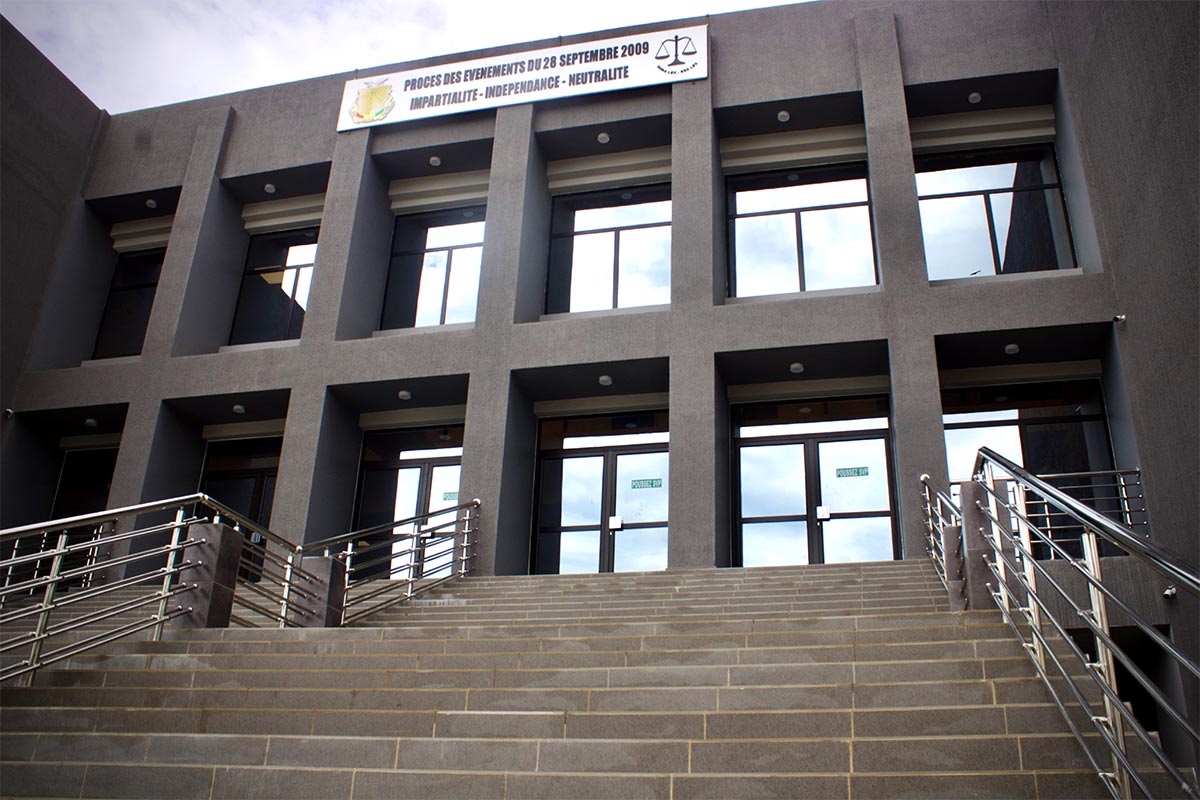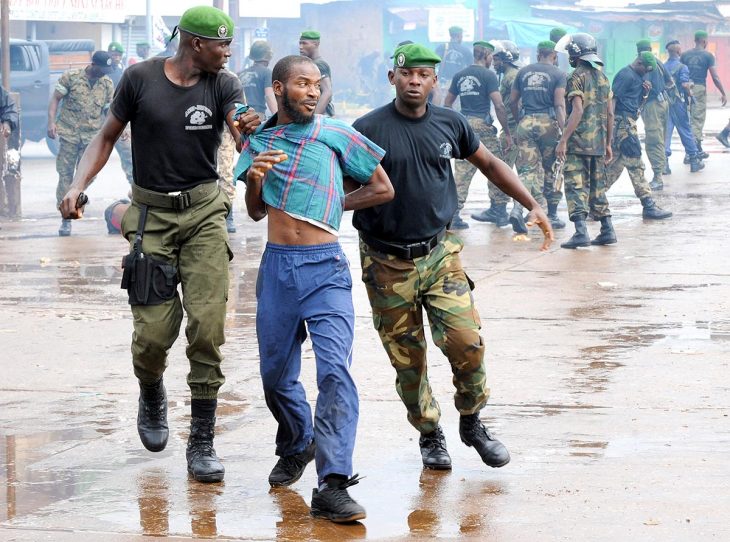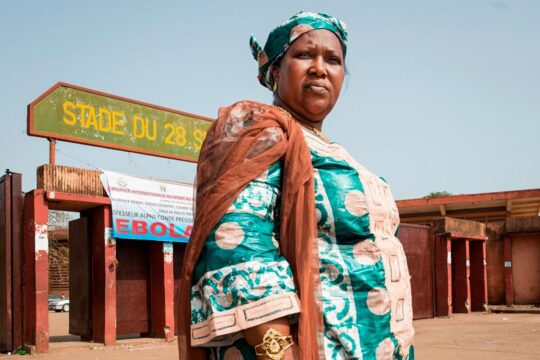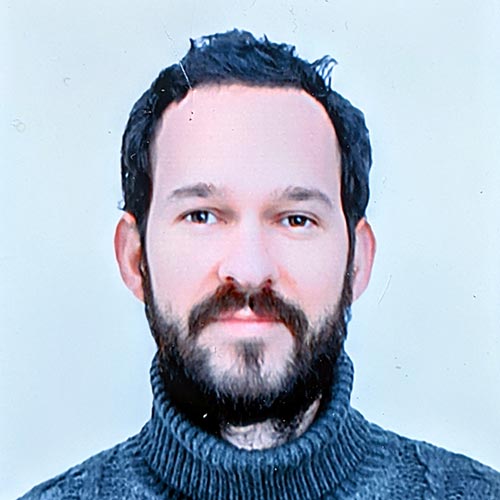Guinea has never had such a trial. An ad hoc tribunal was created and a building was constructed specially to house it. The courtroom, with its imposing dimensions, is overhung by a mezzanine to allow a maximum number of people to follow the proceedings. Eleven defendants will face 450 civil parties in this trial, which could last more than a year, according to Guinea’s Minister of Justice. The trial is scheduled to open on Wednesday, September 28, the 13th anniversary of the Conakry stadium massacre.
Guinea was at the time going through a major socio-political crisis. It had been ruled for nine months by a group of officers, led by Captain Moussa Dadis Camara. They established a "transition" by force, after the death of General Lansana Conté, who had been Guinea’s president for 24 years. The opposition suspected the junta leader of wanting to remain in power. To denounce Camara’s possible candidacy for the presidential election, it called for a "peaceful" rally on September 28, 2009, at Conakry's main stadium. But while thousands of its activists and supporters were gathered in the sports arena, the security and defence forces launched an assault. According to the final report of an international commission of inquiry, at least 156 people were killed. The crackdown left hundreds injured. At least 109 women were victims of rape and other forms of sexual violence. Dozens of people are still missing. Less than three months later, Dadis Camara was removed from power after an assassination attempt.
In January 2010, an independent national commission of inquiry established by the Guinean government confirmed that killings, rapes and enforced disappearances had occurred. The following month, a panel of Guinean judges was appointed to investigate. One indictment followed another. Soon Abubakar "Toumba" Diakité, Moussa Dadis Camara's aide de camp, was indicted. In July 2015, it was the turn of the former coup leader who, according to the indictment, is charged with complicity in murder, attempted murder, abduction, kidnapping and rape. But Guinea's new strongman, Alpha Conde, was reluctant to organize the trial, despite international insistence. After his overthrow in September 2021, a new military junta again promised justice for the stadium massacre. And on July 14, the case was given a decisive boost. In the council of ministers, "the President of the transition [instructed] the Minister of Justice to take all necessary steps to organize the trial by September 28, 2022 at the latest. A steering committee was immediately reactivated and placed under the direction of the Minister of Justice, Alphonse Charles Wright.
Dadis Camara returns to Guinea
Dadis Camara, who has lived in exile since his fall, returned to Guinea on Sunday morning. He has always maintained his innocence. "For 12 years, President Moussa Dadis Camara has asked to be able to return to the country to face the judges and deliver his truth,” says his lawyer, Pépé Antoine Lama.
A total of 12 people have been indicted for their alleged responsibility in the massacre. General Mamadouba Toto Camara, former number two in the National Council for Democracy and Development (CNDD) junta, will not be able to answer to judges. He died in August 2021, ending his prosecution. Among the other defendants are key figures in the CNDD, but the situation of the suspects varies greatly. While some have been in pre-trial detention for several years, others will appear free, such as Colonel Moussa Tiégboro Camara, who was even able to hold high state office after his indictment, being appointed secretary general of the presidency in charge of special services under Alpha Conde. According to the Guinean Minister of Justice, all of the defendants are now banned from leaving the country.
Final preparations
The investigation of the case, which heard more than 400 victims, has been closed since December 2017. Officially, it is the construction of the ad hoc court which has since then delayed the trial opening. On the eve of this opening, the work launched in January 2020 by former President Conde is not yet fully completed. In the brand new building, located behind the Conakry Court of Appeal, some of the furniture is still missing. During a meeting with a lawyer for the civil parties on September 23, the Minister of Justice tried to reassure them that "the courtroom will be operational on September 28”.
Thirteen magistrates were appointed in September to constitute the ad hoc tribunal. They underwent three weeks of training in order to better deal with the magnitude of the trial and its specificities, such as sexual violence. On September 23, the National Transitional Council, which has served as the assembly since Mamadi Doumbouya's coup d'état, passed a law establishing rules for the protection of victims, witnesses, and other persons at risk. Another text on legal aid was also approved.
The Chief Prosecutor of the International Criminal Court, Karim Khan, is expected in Conakry for the opening of the trial. His office (headed until 2021 by Fatou Bensouda) was called upon in the aftermath of the massacre and has visited Guinea regularly since 2010, but has never decided to take up the case, keeping it under "preliminary examination”.
While the American organization Human Rights Watch welcomed the opening of the trial in a statement, it recalls that "many obstacles impeded progress" in the Guinean investigation, "which was slow and inconsistent”. After the investigation concluded in 2017, "groups increasingly denounced delays to the trial’s start and raised concerns about a lack of will to hold the trial," the NGO said.

A political opportunity for Doumbouya
"For the first time, the actions of those in power will be judged," explains Guinean political scientist Kabinet Fofana. "All it takes is political will, for the authorities in power not to meddle in the case, for human rights violations to eventually be judged." Fofana also sees it as a way of calling out "those who are running the country today", as the new military junta seems to have taken an authoritarian turn, banning demonstrations in May and dissolving the National Front for the Defence of the Constitution (FNDC) in August. This civil society organization had spearheaded the protest movement against Alpha Conde's third term, which led to the Doumbouya putsch. Between July and September, it called for several demonstrations, demanding a "rapid return to constitutional order”. Each time, clashes broke out between youth and security forces. According to the FNDC, at least nine people died in the crackdown. Increasingly criticized, Doumbouya may see this trial as an opportunity to "restore his reputation" on the issue of human rights, says Fofana. "The colonel is seeking to make a break with the past regime, because Alpha Conde had shown little interest in having the case tried.” The head of the junta is also in a more favourable position than his predecessor: "If Mamadi Doumbouya is moving quickly on this case, it is because he is not politically exposed. Alpha Conde had people around him whose names were mentioned in the case," recalls the political scientist.
In an open letter to the transitional president on September 22, the Association of Victims, Relatives and Friends of September 28 (Avipa) and the International Federation for Human Rights (FIDH) said they hoped the trial would be held "in accordance with international rules and standards" and "allow the victims to obtain justice, truth, recognition and reparation”. The lawyer for the civil parties, Alpha Amadou DS Bah, said he was reassured by the conditions under which the trial would open. "We are confident, and we are waiting to see how the first few days of the hearing will go, then we will judge. We have no preconceptions, but we remain vigilant,” he stated.
On the defence side, some lawyers are already expressing fears. "We hope that this trial will be conducted according to the rules, that the magistrates in charge of the case will comply with the procedure,” Mr. Lama warns “They must not fall prey to pressure guided by emotion or political interests.”







